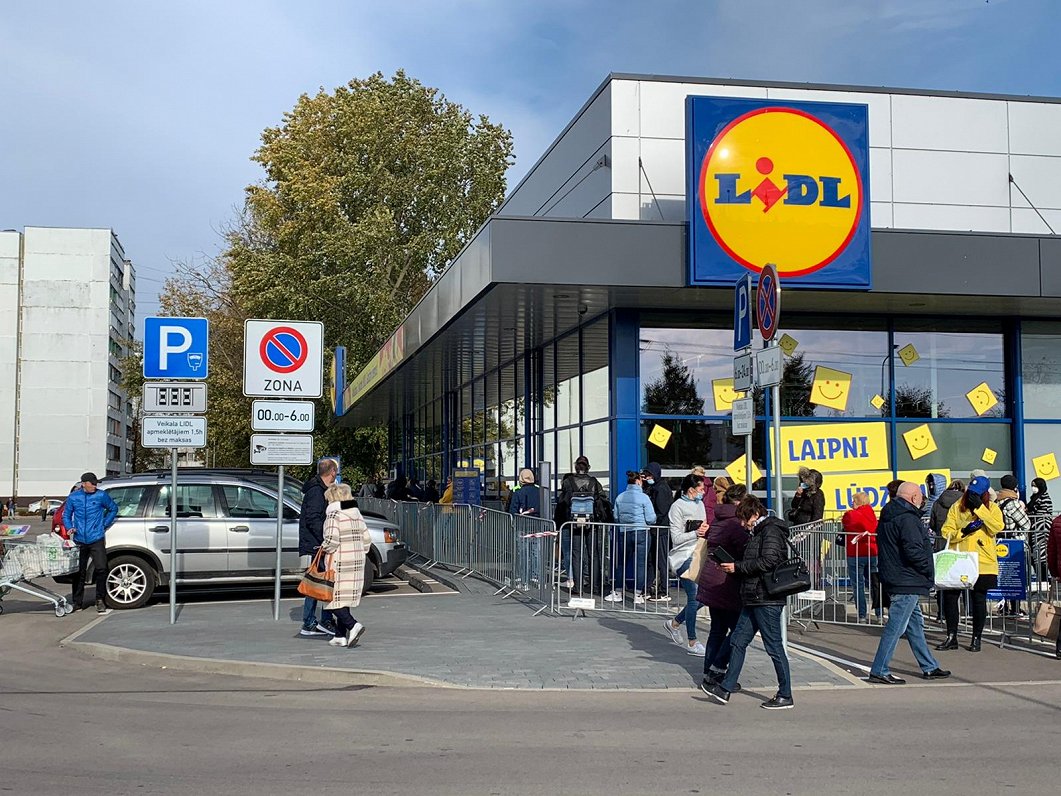On Thursday, October 7, the German retail company Lidl opened 15 new stores – six in Riga and nine in other cities of Latvia. The company has created around 2,000 jobs.
Why was it right now that the company decided to open stores, not in summer, when Covid-19 incidence was significantly lower? “We certainly couldn't predict that today the government would sit down at the table and plan on what to do next. Previously, we had planned to open stores at the beginning of the year, early spring. We were looking for employees. In fact, the shops almost had complete teams,” explained Dana Hasana, head of Lidl Latvija communication department.
“It's better to open now than it would have been, for example, in February. [..] We have to build our own supply network, we need to bring goods out of Europe. Contracts have also been concluded with local suppliers. It's not a process that can be stopped within a week,” said Hasana.
But on how much market shares Lidl intends to conquer in Latvia, Hasana says: “We are the second country in the Baltic after Lithuania where Lidl opens its network. In Lithuania, Lidl has been working for six years and they are currently the third or second retail network according to the turnover. Of course, there are already more than 50 stores out there.”
Henriks Danusēvičs, president of the Latvian Traders Association, predicts that Lidl will take over 4% of Latvia's trade turnover in the future: “So, unfortunately, other traders are expected to see a drop in market share interest. Big and small. Traders of non-food products are also being hit. After each shop network entered – whether it was “Rimi” 25 years ago or “Maxima” 15 years ago – there were always people who went to check it out and some became loyal.”
Juris Šleiers, head of public relations for Rimi Latvija, predicted that the fuss around Lidl would diminish and there would be no shortage of customers loyal to each retailer. “The competition in this sector has always been very fierce, so bringing a new player into the market is no drama and no one falls into panic. Major retail players have always dynamically reacted to each other's moves. Everyone is in good shape,” Šleiers said.
Similarly, the representative of the “Citro” retail network, Imants Kelmers, looks at increasing competition positively because it makes everyone work more efficient and productive.
In response to the prices offered by Lidl in certain commodity groups, other traders have also adjusted their prices.
Entry of Lidl can stabilize food prices in Latvia. “In order not to create such a situation that there are very different prices for different food retailers,” said Gundars Bērziņš, dean of the Business, Management and Economics Faculty of the University of Latvia.
As Bērziņš noted, Lidl entering the Latvian retail market will be a good lesson for other market participants. In the long term, it will also enable other markets to start and be able to compete in the global food market.
Currently, the retail sales of food and other goods have a large market share owned by the “Maxima” and “Rimi” networks. They are followed by smaller networks: “Mego”, “Lats” and “Elvi”, while a third of the market is for all other retailers.





























